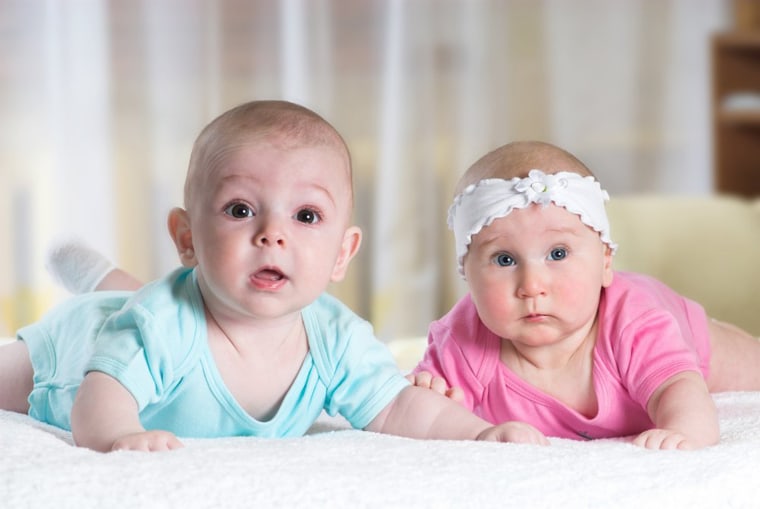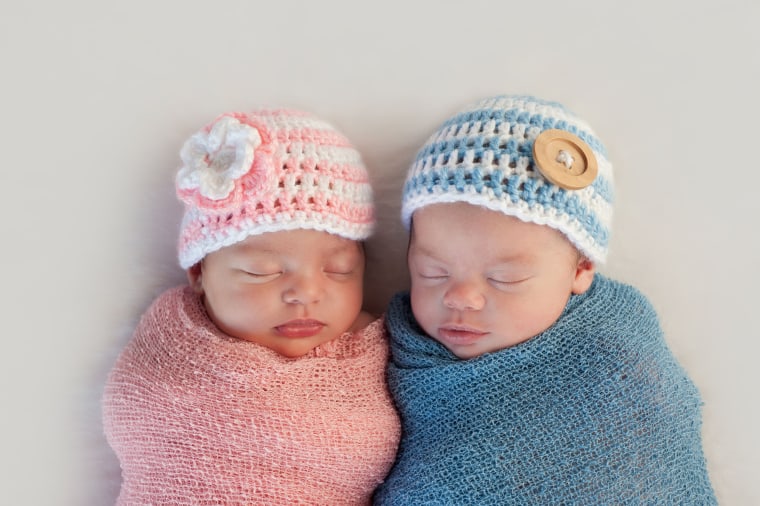Before I’d even gotten pregnant, I had a vision of two little girls in dresses holding hands — an image of my future daughters that both thrilled and comforted me (and that came true). I didn’t want boys, partly because whether or not to circumcise them confounded me, and partly because, until I met my husband, I hadn’t known many men I thought of as really good guys. (My ideal man was Coach Taylor from Friday Night Lights, plus a sense of humor and a searing intellect, preferably). But I knew many smart, funny and kind women, most of them single. If it was so hard to find a good man, I reasoned, it must be because it was hard to raise one.
This explained my lack of desire for sons, perhaps, but not the intensity of my desire for daughters. And it wasn’t something I questioned until I started writing about gender and talking with transgender men who told me how hard it was for their mothers to let go of this desire for daughters. As I heard their stories, I realized how much I shared that desire. But why? Why do we care if our babies are boys or girls, and why is the first question we so often ask a pregnant woman the gender of her unborn child?
And perhaps more importantly, how does the answer affect the way we raise our kids?
I put the question to Dr. Christia Spears Brown, a professor of psychology at the University of Kentucky and the author of Parenting Beyond Pink and Blue. Babies are blank slates, she says — one of the only things we know about them in the beginning is their natal sex. From there, we extrapolate.
“Parents are focused on the gender of their babies because they think it’s going to tell them what that child’s life is going to be like,” she says. We assume that gender predisposes them to display behavioral or emotional characteristics, that it defines their desires. And we think if our children match our own gender, we will overlap in experiences and points of view. “It’s easier to envision yourself bonding with kids you perceive to be similar to you,” she says.
"Parents are focused on the gender of their babies because they think it’s going to tell them what that child’s life is going to be like."
Many of us believe, or hope, that a girl will be sweet, responsible and hardworking, affectionate, pliable and respectful. We believe she will be someone we can dress in cute clothes and whose long hair we can plait into braids, under the ahistorical guise that these things are only for girls — even if want them to be strong, independent and proud. We believe our boys will, or should, be authoritative and boisterous, natural leaders in the vein of Coach Taylor: strong and sporty companions just competitive enough to win.
But Brown has waded through much of the science around brains and gender, concluding that the sex we are assigned at birth has little to do with who we are as people. While there is no consensus within the scientific community, many studies assert that there is no male or female brain (one study calls them “intersex”), no inherent desire for cleats or ballet shoes tied to gender, no special skill sets or ingrained behavior. “There are very, very few differences in cognition and behavior,” between young boys and girls,” says Brown.
There are, of course, physical differences wrought by hormones — muscle mass, fat, and, of course, the development of sexual characteristics. Some studies also assert that there is an inherent preference for toys with wheels among boys, perhaps due to differences in the development of fine versus gross motor skills. (One study found this to be true even in monkeys.)
But it’s possible that many of the differences between young boys and girls come from the way we approach child rearing, and the messages kids get about how boys and girls should look and behave: the cultural stereotypes we impose on them that become self-fulfilling prophesies of sorts. “It’s almost entirely cultural,” Brown says. Natal sex, in other words, is less predictive of who your children will be than of how you will treat them.

I see this even among the most progressive parents: parents of boys encouraging behaviors bordering on bullying while not tolerating correlating behavior in girls. Sweetness in boys is still too often viewed as a weakness; in girls, it’s a virtue. Some progressive parents told me they dissuaded their boys from wearing pink t-shirts, cowgirl pajamas or Hello Kitty backpacks, no matter how much the kids wanted them and how much they wanted to give them those things — they simply couldn’t summon the strength to swim against the current of gender pressures. (Admittedly, this is a far harder prospect for boys than girls.)
And countless times I have heard, “You’re lucky you have girls,” as parents of boys describe their children’s inherent wildness (believe me, my daughters can rival it). Sometimes I have heard the opposite.
One friend had three sons, each time hoping for a daughter. Girls, she said, stick close to home when they grow up and have children of their own, if not geographically then emotionally. Another friend told me she believed girls would look after her when she grew old.
Yet I have seen no evidence of any of this.
When I point this out, most parents I talk to are defensive, unwilling to admit that they have bought into stereotypes about what’s appropriate for boys and girls in their clothes, toys and activities. They are disinclined or unable to examine what they encourage, allow or disavow based on natal sex.
These kinds of internalized biases affect all kids, no matter their gender identity.
But they should, because these kinds of internalized biases affect all kids, no matter their gender identity.
“Stereotypes are restricting for the kids that fit the stereotype and those that don’t,” says Brown. Indeed, a recent study shows just how harmful gender stereotypes are, especially for girls, whose self-esteem and even career paths are affected by those stereotypes.
So rather than asking if a pregnant woman is having a boy or girl — or hoping for one or the other ourselves — why don’t we focus on raising our children free of gender-based expectations, to help them grow into their authentic selves? This doesn’t mean that we should ignore gender, or that biology or gender identity are irrelevant. It means that we shouldn’t define our children’s experiences because of those things.
The truth is, our children will always be different than who we imagined them to be. Indeed, the demure children in the girly outfits I envisioned those years ago aren’t the daughters I have. But that’s OK. Being sweet or courageous or patient or driven are good things. We just shouldn’t think they apply to kids based on gender.
Lisa Selin Davis is the author of two novels, BELLY, and LOST STARS. She has written about a variety of topics including urban planning, the environment and parenting.
